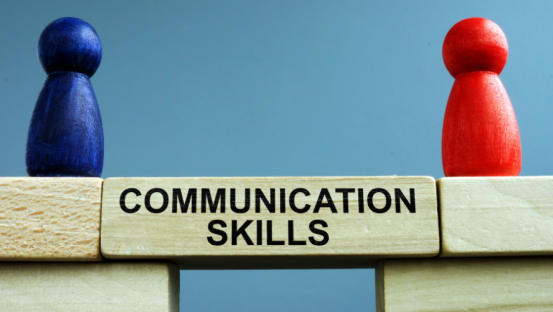60 ideas and quotes on breaking through a creative block

Inspiration sometimes runs dry, and for anyone in a creative field—from presenters to sculptors—feeling a lack of creativity can leave you feeling jammed and baffled, unsure of whether the creative genius will ever come back.
Most of us have been there at some point, and sometimes a bit of practical advise and the well-thought-out words of history's greatest creative talents can be just the ticket to getting some inspiration back and lift the creative block.
These ideas and quotes have been arranged in an order that will help you work systematically through your creative block, and hopefully get you back in the flow. You’ll find nuggets of wisdom from Andy Warhol, Maya Angelou, Salvador Dali, Sylvia Plath, and Ernest Hemingway.
Continue reading more quotes below or download the eBook from SlideShare.
Stop trying so hard
1. “All profound distraction opens certain doors. You have to allow yourself to be distracted when you are unable to concentrate.”
—Julio Cortázar
2. Cut down your workload. If you take on too many projects, start saying ‘no’.
If you have been trying to work on too many ideas, decide on a few that are important and put the rest on the backburner.
Sometimes if we are trying to spin too many plates, we aren’t leaving ourselves enough time for creativity to flow.
3. Do nothing. Spend some time doing nothing. If you’re completely stuck on something, stop working on it for a little while.
The author Raymond Chandler had a stellar idea on how to deal with a creative block: Write or nothing.
Doing nothing is not the same as doing something else. Don’t give in to distractions: don’t read, write emails, browse Twitter or do your bookkeeping.
Be creative or do nothing.
4. Stop. Sometimes the only answer is to say “Actually, this simply isn’t working at the moment.”
Don't be afraid to occasionally step away from projects.
Create some distance. Take a big break.
Come back to it with a clear head when you are ready.
5. “Most artists have experienced the creative block. We get stuck in our work. We beat our head against the wall: nothing. Sometimes, it is because we are trying something at the wrong time.”
—Lukas Foss
Assess the problem
6. “I think creative blocks come from people’s life journeys. If you don’t know who you are or what you’re about or what you believe in, it’s really pretty impossible to be creative.”
—Rainn Wilson
7. Do a personal assessment and not just the creative part.
Sometimes creative blocks are caused by other issues or blockages in our lives.
Don’t just treat the symptom; address the root problem.
8. Stop ignoring the block or just pushing through it.
Sit down and have a think about why the block is there—what is causing the block? What is stopping you from getting into the creative flow?
Listen to what comes up and learn from it.
Then move on.
9. Look for patterns in your episodes of creative block: if you are consistently finding a particular part of your projects where creative blocks come up, take notes when it happens and you may notice a trend.
Then you can start to look for solutions.
10. “The key question isn’t, ‘what fosters creativity?’ but is, ‘why in God’s name isn’t everyone creative?’ Where was the human potential lost? How was it crippled? I think therefore a good question might be not, ‘why do people create?’ but ‘why do people not create or innovate?’ We have got to abandon that sense of amazement in the face of creativity as if it were a miracle if anybody created anything.”
—Abraham Maslow
11. Carve out some 'you time': If you are constantly on the go, it can be hard to cultivate creativity.
Feeling burnt out or blue can have a severe impact on your creative flow.
Try making some time for yourself and give yourself room to rebalance. After a few days you may find that you are feeling more ready to launch back into the creative process.
Face your fears
12. "Procrastination is not laziness,' I tell him. 'It is fear. Call it by its right name and forgive yourself."
—Julia Cameron
13. Don’t think about making art, just get it done. Let everyone else decide if it’s good or bad, whether they love it or hate it. While they are deciding, make even more art.”
—Andy Warhol
14. Face your fears, whatever the specifics may be.
It can be easy to get caught up in the end result of the project: whether it will be as good as your last piece of work, whether your client or audience will like it, whether it will be “good” or not.
Don’t get sucked into that anxiety, but face it. Then keep creating.
Sometimes we can misdirect our general fears into our projects. Separating them can help remove the creative block.
15. “The worst enemy to creativity is self-doubt.”
―Sylvia Plath
16. Berating, doubting and judging yourself or your creative integrity rarely helps, and often only makes the block last longer.
Accept that you’ve got a block, and try not to judge yourself too harshly for it.
Trust yourself: no matter how bad the block feels, eventually it will pass and you will begin to feel creative again.
17. “Have no fear of perfection, you will never reach it.”
—Salvador Dali
Change something in your life
18. Sticking to a regular routine can also help break a creative block.
While there might be room for a few days rest and taking a break from the work, eventually you are going to have to jump back in.
Having a set time when you say to yourself “Ok, I will work on this for [x] hours every day” can help you get back into the groove of working on a project.
19. Research shows that people who exercise at least 4x a week show greater creative ability than people who are sedentary.
If you are stuck in a creative block, get more exercise. It will improve both your well-being and maybe getting some blood pumping through the body will free up some creativity in the mind!
20. Change your diet: try eating new foods from another culture, go on a diet, eat something completely different for lunch, do a juice cleanse.
When we are stuck on the same track—same food, same faces, same office—our minds can get stuck in a rut.
Creating a change, even if for a few days, can inspire new thoughts and ways of thinking that can lift the creative block.
21. Limit your use of technology for a few days, or block it off for parts of your schedule.
The internet can be a huge distraction, and while it can be inspiring at times, it can also be a time waster that sucks your creativity out. If you are in a creative block, try taking a break from social media and surfing for a few days.
Answer emails, messages and texts at set times, then switch your phone off and leave it in another room. You might be surprised by how much more time you now feel you have, and then how the creative juices start flowing again.
Get into a different headspace
22. “Creativity is inventing, experimenting, growing, taking risks, breaking rules, making mistakes, and having fun.”
—Mary Lou Cook
23. Get some new perspectives.
Go somewhere new. Start reading / watching / listening to something new and unusual.
Talk to people who you know will disagree with you, or who can offer alternative points of view.
Have your assumptions questioned, and ask yourself “Why is this like this?” and “What if we did this?”
Pushing yourself to think about things in a new way can help you make new connections in your brain, which can foster creativity.
24. Laugh. Yes, you read this right. Laugh. Laugh out loud. Not a smirk or a polite chuckle, but a good, hearty laugh.
Watch some comedians on YouTube or Netflix, go to a comedy show, call up a friend who always makes you laugh, but shake things up with a good bout of laughter.
Physiologically and mentally, laughter can alter your body and mind, and help relieve stress. Sometimes the release can be enough to break through a creative block.
25. Start thinking in metaphors. Take a piece of the content you are trying to express, and turn it into a metaphor.
Metaphorical thinking is very powerful and can spark creativity. It can evoke vivid imagery, which can help foster new perspectives.
Switch things up and stretch your creative muscles
26. “You can’t use up creativity. The more you use, the more you have.”
—Maya Angelou
27. Leave your desk and shake up your surroundings. Try working from the living room, or in a co-working space for a few hours. Having a change of scenery is sometimes enough to give you some fresh ideas. Try writing or working on your project in a different room in the office, at home, in a coffee shop, or even on the train.
You can always refine your work in your normal workplace, but sometimes seeing the same things all the time can cause a creative rut.
28. Do something completely unrelated to your discipline, switching up your medium.
If you normally write, try speaking out loud and recording yourself. If you normally speak, try painting or poetry. Go for a photo walk. Just take pictures of random things that look interesting.
Play around without judgment. Just explore the creative process.
Often creativity begets creativity, and a few hours in a different medium can shake the block out of place and give you some new ideas.
29. Get moving! Kinesthetic activity has been shown to increase creativity, so get up from your desk and shake things out. Get your heart rate up for 5-10 minutes, put on a motivating song and dance, do some jumping jacks, or pace around the room for a few minutes—it might be enough to shake out the next idea.
30. Dare to do something differently. Don't always retrace your steps, even steps that led to success in the past. It can be tempting to reproduce an old project or process, but all too often you either don’t get the same result, or you will end up boring yourself and your audience.
Go in a new direction. Take what worked before and work it into something fresh and different. Sometimes creative blocks can be caused because you’ve been doing the same old thing for too long
31. Encourage some creative daydreaming! Try doing some menial tasks that do not demand a lot of focused attention.
Take a walk, take a shower, wash the dishes, go for a drive in the country. Like Archimedes in his bath, sometimes doing something menial can inspire a “eureka!” moment.
32. “Creativity is just connecting things. When you ask creative people how they did something, they feel a little guilty because they didn’t really do it, they just saw something. It seemed obvious to them after a while. That’s because they were able to connect experiences they’ve had and synthesize new things. And the reason they were able to do that was that they’ve had more experiences or they have thought more about their experiences than other people. Unfortunately, that’s too rare a commodity. A lot of people in our industry haven’t had very diverse experiences. So they don’t have enough dots to connect, and they end up with very linear solutions without a broad perspective on the problem. The broader one’s understanding of the human experience, the better design we will have.”
—Steve Jobs
Look at things differently
33. “Nothing is original. Steal from anywhere that resonates with inspiration or fuels your imagination. Devour old films, new films, music, books, paintings, photographs, poems, dreams, random conversations, architecture, bridges, street signs, trees, clouds, bodies of water, light, and shadows.”
—Jim Jarmusch
34. There is no such thing as a new idea. We simply take a lot of old ideas and put them into a sort of mental kaleidoscope.”
—Mark Twain
35. Purposefully go against the flow. Approach the project in a different way to how others may approach it.
While It may not end up being the direction you choose to go with, it can shake up your creative block, give you fresh ideas, and help you look at things differently.
36. “When learning is purposeful, creativity blossoms. When creativity blossoms, thinking emanates. When thinking emanates, knowledge is fully lit. When knowledge is lit, economy flourishes.”
—A.P.J. Abdul Kalam
37. Start learning something new. Immersing yourself in a new study, new industry, or even in a new culture, can help mix up the context and lead to inspiration.
Do something else entirely, and start forming new neural connections.
These new connections and new information can cross-pollinate with your current knowledge base and give you some fresh ideas.
38. “Develop a passion for learning. If you do, you will never cease to grow.”
—Anthony J. D'Angelo
39. Reimagine your project in a completely different way.
Ask yourself something like “How would Oprah word this?” or "What would Winston Churchill do if he was going to talk to this audience?"
Looking at things from an unfamiliar angle can sometimes give you a new perspective.
40. “Creativity is more than just being different. Anybody can plan weird; that’s easy. What’s hard is to be as simple as Bach. Making the simple, awesomely simple, that’s creativity.” ——Charles Mingus
Become your own source of inspiration
41. “You can’t wait for inspiration, you have to go after it with a club.”
—Jack London
42. Get warmed up.
Try this experiment: Watch the world around you and record what you’re seeing and experiencing. Try and catch the feeling. Focus on small details others would miss.
Or copy something that is already in existence. Write someone else’s words, try practicing a part of someone else's speech, make a replica of a painting you admire.
Sometimes merely the act of speaking, writing, painting, designing can get you back into the groove.
43. Always carry a notebook with you and start jotting down ideas or inspiring things while you are out and about.
Positive, negative, brilliant, or junk, it doesn't matter, just practice recording ideas as they come to you.
Anything and everything can be inspiring—a sign in a train station, a song lyric, an insightful comment from a friend in a conversation. Write them all down.
Then when you are feeling less inspired, go back through your notes and see what jumps out at you.
44. Spend some time brainstorming your topic. Write down everything you possibly can, no matter how far-fetched it may seem. Think about each of the ideas, then start narrowing it down to the best ideas.
45. Draw the art you want to see, start the business you want to run, play the music you want to hear, write the books you want to read, build the products you want to use – do the work you want to see done.”
—Austin Kleon
46. Write your main ideas down in columns, and list absolutely everything that comes to mind. Try mixing and matching some of the ideas to see if it inspires some unusual and original combinations.
47. Don’t stop at one solution for a problem. Think about 4, or 10, or 20 different solutions (kind of like this list of 60…!)
When you come up with a lot of options, scenarios or solutions, you will have the choice over which option would be best for you audience instead of just getting stuck on one idea and running with that
Finding many solutions will help alleviate the pressure of finding “one great idea”, which can help lift the creative block.
48. “If I create from the heart, nearly everything works; if from the head, almost nothing.”
—-Marc Chagall
Set focus-improving parameters and keep working at it
49. “Inspiration is for amateurs — the rest of us just show up and get to work.”
—Chuck Close
50. “The best way out is always through.”
—Robert Frost
51. Instead of just feeling overwhelmed and stuck, pick a single goal or focus that you will work on for a very specific time frame. Choose an achievable outcome to focus on, something you believe you can realistically do in the time frame.
This could be as simple as a single line for your opening, the intro paragraph to your next chapter, a rough sketch, a single screen design, or a few more bars.
As long as you keep moving forward incrementally, you can break the stuck cycle and get the creativity flowing.
52. "The idea of divine inspiration and an aha moment is largely a fantasy. Anything of value comes from hard work and unwavering dedication. If you want to be a good artist you need to look at other artists, make a lot of crappy art, and just keep working."
—Sydney Pink
53. Start to work early. You have more willpower early in the day. So before you start running errands or answering emails, get started on your project first of all.
It’s easier to focus on the important things before distractions and fatigue take over.
54. "Show up, show up, show up, and after a while the muse shows up, too. If she doesn’t show up invited, eventually she just shows up."
—Isabel Allende
55. Sometimes if there is no time constraint and we have a creative block, we can let days and weeks pass before we sit down and pick up the project again. A way around this is to make your own time limits and stick to them.
Give yourself milestones and a deadline. Then tell mentors, friends, and family members so that you stay committed to it.
56. “Create like a god, command like a king, work like a slave.”
—Constantin Brancus
57. Switch your work order around. If you always work in a specific linear pattern, try juggling it or working backwards, or just skip the part that is blocked and go to the next piece.
58. “Inspiration exists, but it has to find us working.”
—Pablo Picasso
59. Leave a sentence unfinished: Ernest Hemingway would regularly stop writing mid-sentence, and leave just enough to pick right up on the next day.
Try something similar in your process, instead of finishing a piece completely at the end of the day, stop a bit early and continue it tomorrow.
That way when you sit down to start working again, you know exactly where you are and what you have to do, which can get you back into the flow for the day ahead.
60. “Don’t think. Thinking is the enemy of creativity. It’s self-conscious, and anything self-conscious is lousy. You can’t try to do things. You simply must do things.”
—Ray Bradbury
Would you like to see these quotes visualised? Download our free eBook here.
Are you a professional speaker, trainer, moderator or webinar host? Find out more about being listed on SpeakerHub.





